Master Chess Strategies with Expert Coaching
Chess, a game known to test intelligence, strategy, and patience, is a pursuit that both beginners and experts alike can benefit from coaching. Aiding in the understanding and mastery of the game, an experienced mentor can make all the difference when it comes to developing and refining critical skills. This exploration delves into the significance of chess coaching, the process of finding the right coach, understanding fundamentals, learning from top players, and various other aspects that contribute to a player’s growth and success in the fascinating world of chess.
The Importance of Chess Coaching
The Game of Chess
The game of chess, often referred to as the royal game, is a board game that has captivated players’ minds for centuries. It requires critical thinking, strategic planning, and problem-solving, among other cognitive skills.
Chess Coaching
To develop these skills to their full potential, chess coaching has become an indispensable element in the journey of a chess player. In this regard, having an experienced chess coach is essential in honing a player’s skills and understanding of the game, as it allows for personalized guidance, support, and expertise that goes beyond self-learning methods.
The Role of a Coach
One critical aspect of chess coaching is the coach’s ability to analyze the strengths and weaknesses of the player. By spending quality time with the student and engaging in regular practice sessions, the coach can quickly identify the areas in which the student excels and those that need improvement. This tailored, individualized approach enables the student to focus on sharpening their skills, which in turn leads to more significant growth than if they were to merely rely on books and videos.
Mental Preparation
Beyond introducing new strategies and tactics, chess coaches also teach their students how to maintain a sound psychological frame of mind during gameplay. A player’s mental state can significantly impact their performance, and a good coach will emphasize the importance of staying calm and focused, even in high-pressure situations. By offering support and guidance in this area, coaches help their students effectively navigate the psychological aspects of the game, increasing their chances of success on the board.
Personalized Feedback and Assessment
Another benefit of having a chess coach is the personalized feedback and assessment that they provide. It can be incredibly helpful to have someone watch and assess one’s games, providing constructive criticism and practical suggestions for improvement. An experienced chess mentor can also help their students to develop and refine their own unique playing style, as opposed to merely imitating established strategies and opening moves. This personalized attention allows the student to expand upon their natural abilities and personalize their approach in a way that makes the most sense for them.
The Importance of Chess Coaching
Chess coaching plays a crucial role in helping players improve their skills and understanding of the game. A good chess coach provides invaluable guidance, assisting students in developing and refining their playing styles. This coaching also instills a sense of discipline and focus that benefits players throughout their chess careers. By fostering a comprehensive and personalized understanding of the game, players who engage in chess coaching distinguish themselves from their peers and establish a strong foundation for success in the competitive world of chess.
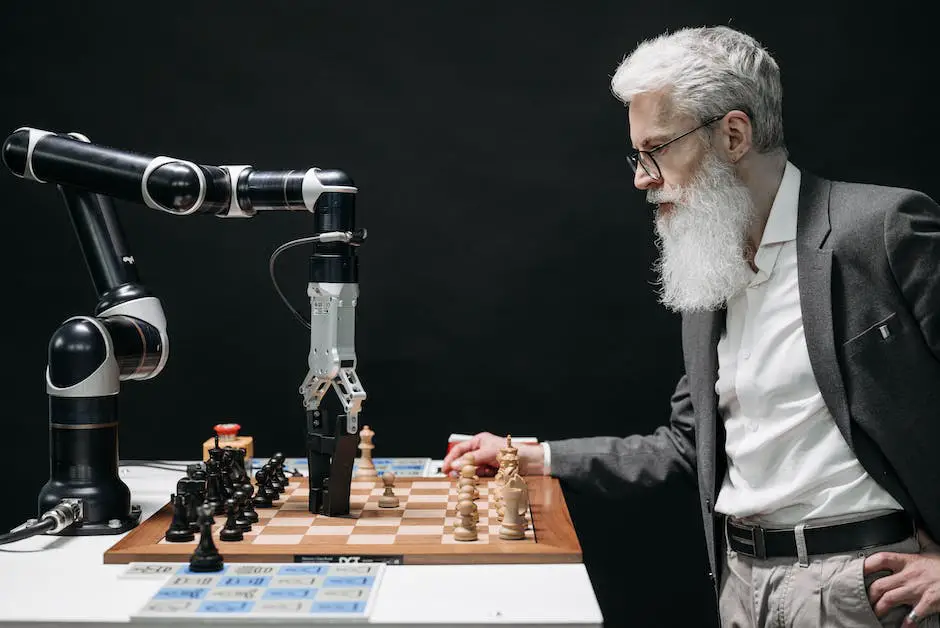
Finding the Right Chess Coach
Qualifications of a Chess Coach
When seeking a chess coach, it is vital to examine the qualifications of potential candidates. Ensuring that your potential chess coach possesses the appropriate training and experience is essential to receive the guidance needed to enhance your chess abilities. Some coaches may be International Masters, Grandmasters, or have extensive experience coaching competitive players. Additionally, researching their past students and success stories can help determine their coaching style and effectiveness, allowing you to make an informed decision.
Communication Style
Another important factor to consider when choosing a chess coach is their communication style. A good coach should have strong communication skills and be able to effectively convey their ideas and strategies. It is vital that you feel comfortable asking questions and that the coach can provide clear explanations and feedback. Some people may prefer a more direct and analytical approach, while others may learn better with a more patient and supportive coach. Assessing your preferences and evaluating the coach’s communication style will help ensure you achieve the best results in your chess development.
Availability
Availability is another crucial aspect to take into account when selecting a chess coach. Whether you prefer in-person or online coaching, it’s important to find a coach who has a flexible schedule that aligns with your availability. Consistency is key when it comes to improvement, so finding a coach who can dedicate regular time to working with you will undoubtedly boost your progress.
Resources for Finding a Chess Coach
There are various resources available to find potential chess coaches both online and offline. Online platforms like Chess.com, Lichess, and the Internet Chess Club offer a directory of certified chess coaches that you can review and contact. These databases can be an excellent starting point for finding a coach that suits your needs and preferences. Additionally, local chess clubs and organizations may offer coaching services or host events where you can connect with potential coaches in person.
Budget Considerations
When searching for a chess coach to help you improve your skills and achieve your goals in the chess world, it is important to consider your budget. The cost of chess coaching can vary greatly based on the coach’s experience, location, and availability. Some may offer hourly rates, while others could provide a set fee for specific training programs. To make an informed decision, it is wise to compare rates, coaching styles, and the value each coach can bring to your development as a chess player; keeping both your performance and financial needs in mind.
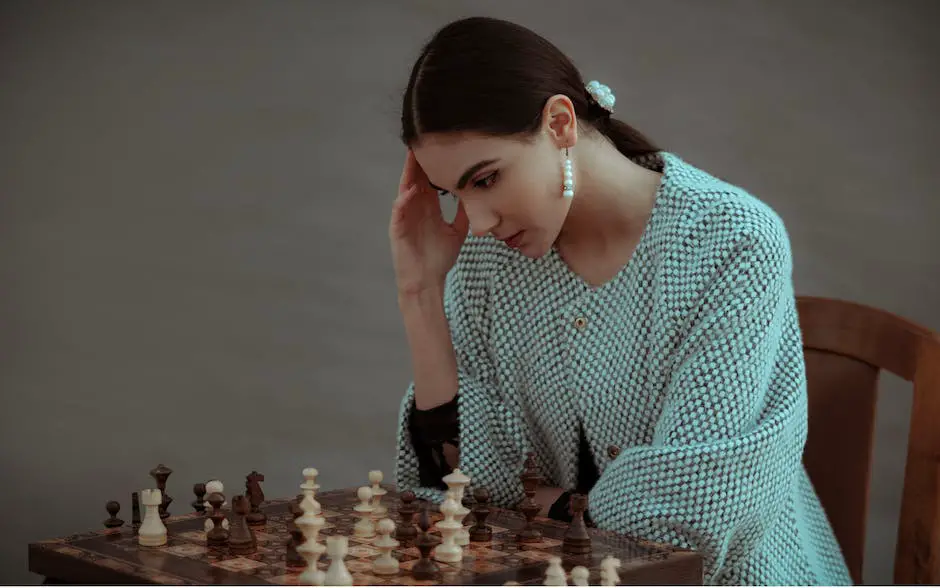
Understanding Chess Fundamentals
Controlling the Center
One of the fundamental concepts in chess that every aspiring player should learn and that a good chess coach will emphasize is controlling the center of the board. The four central squares (d4, d5, e4, and e5) are considered the most crucial areas to dominate. By maintaining control of these squares, a player can dictate the flow of the game, limit their opponent’s options, and create opportunities for their pieces to exert influence on both sides of the board.
Quality chess coaching will teach players the importance of controlling the center and demonstrate how to effectively use their pawns and pieces to establish dominance in this area, all within your budgetary needs.
Piece Development
Another key concept in chess is piece development. This involves moving your pieces from their initial setup to more active and effective positions. Proper piece development is essential for a successful game as it allows players to control crucial areas of the board, protect essential squares, and prepare for potential tactics or attacks against the opponent.
Chess coaches focus on teaching students the importance of piece development and the most efficient ways to mobilize their pieces. This includes understanding the optimal opening moves and being able to adapt to different scenarios during the game.
Pawn Structure
Pawn structure is another vital aspect of chess fundamentals. Pawns, while often considered the weakest pieces, play a critical role in shaping the flow of the game. They support and protect more potent pieces, control crucial squares, and can advance to transform into other, more powerful pieces when they reach the opposite end of the board.
Chess coaches emphasize the importance of understanding pawn structure and maintaining a strong, cohesive pawn formation during the game. This includes recognizing weak and strong pawn structures, such as isolated or doubled pawns, pawn chains, and passed pawns, and knowing how to exploit these situations to one’s advantage.
Tactics
Tactics are specific moves or a series of moves that take advantage of short-term opportunities to gain material or improve a player’s position. Examples of common tactics include forks, pins, skewers, discovered attacks, and deflections.
Chess coaching trains players to spot and utilize tactics during the game, as well as how to defend against them. Recognizing these tactical opportunities is essential for improving a player’s overall chess game and can often make the difference between winning and losing.
Tempo
In order to excel in the game of chess, understanding the concept of tempo is crucial. Tempo can be defined as the speed and efficiency of a player’s actions during the game. Gaining tempo often involves putting pressure on the opponent, forcing them to respond reactively to your moves and preventing them from being proactive themselves.
Balancing the development of pieces, maintaining a strong pawn structure, and utilizing tactics to gain a material or positional advantage all contribute to the importance of tempo in a chess game. Coaches often focus on exercises and game scenarios with their students to enhance their understanding of tempo and its significance in the game.

Learning from Top Chess Players
The Intricacies and Strategies of Chess
Expert chess players throughout history have contributed to the exploration, development, and refinement of chess intricacies and strategies. Some of these players, like Garry Kasparov, became renowned for unique styles of play, such as Kasparov’s aggressive and dominant approach to the game. By studying the techniques and strategies of legendary players like Kasparov, aspiring chess enthusiasts can derive valuable insights into effective gameplay.
To aid this learning process, a chess coach plays a crucial role in breaking down, analyzing, and teaching these optimal strategies, thereby improving a player’s comprehension of the game and elevating their gameplay to new heights.
Approaching Each Game
Another aspect of learning from top chess players is to understand how they approach each game. Great chess players like Magnus Carlsen, the World Chess Champion, are known for their exceptional ability to analyze and calculate complex positions and possibilities in their minds. While it may be difficult for beginners to emulate this advanced level of analysis, working with a chess coach can help individuals develop their critical thinking and evaluation skills, enabling them to think more deeply about each position during matches.
Understanding Opening Repertoire
In addition to analyzing famous chess players’ games, understanding their opening repertoire can also assist in elevating one’s gameplay. Openings are an essential aspect of competitive chess, and successful players often have a diverse and well-prepared opening repertoire to adapt to various opponents. By studying games of elite players and learning about the most effective opening lines, a chess coach can help players choose opening lines that are suited to their playing style, thus improving their chances of success early in the game.
Emulating Psychological Strategies
Furthermore, chess coaches can provide guidance and feedback on emulating famous players’ psychological strategies, time management, and mental fortitude. The ability to remain focused and calm under pressure is a crucial skill in chess, as players often face intense battle of minds with their opponents, especially during time-sensitive matches. World-renowned players like Bobby Fischer and Anatoly Karpov display extraordinary resilience and tactful psychological warfare that can be valuable lessons. Chess coaching can help individuals develop these mental strengths and learn techniques to cope with stress and difficult situations, improving their performance during crucial moments in competitive chess.
Offering Support and Encouragement
Building mental fortitude is essential in learning chess, and chess coaches play a significant role in offering support and encouragement throughout the learning process. By providing objective and constructive feedback and recognizing achievements, a chess coach can foster personal growth and improvement in a player’s game. Studying the resilience and determination of famous chess players can serve as inspiration for overcoming obstacles and continuously reaching for higher levels of mastery in the game. Combining the emulation of successful strategies in chess from top players with personalized coaching can lead to substantial advancement in one’s chess skills.
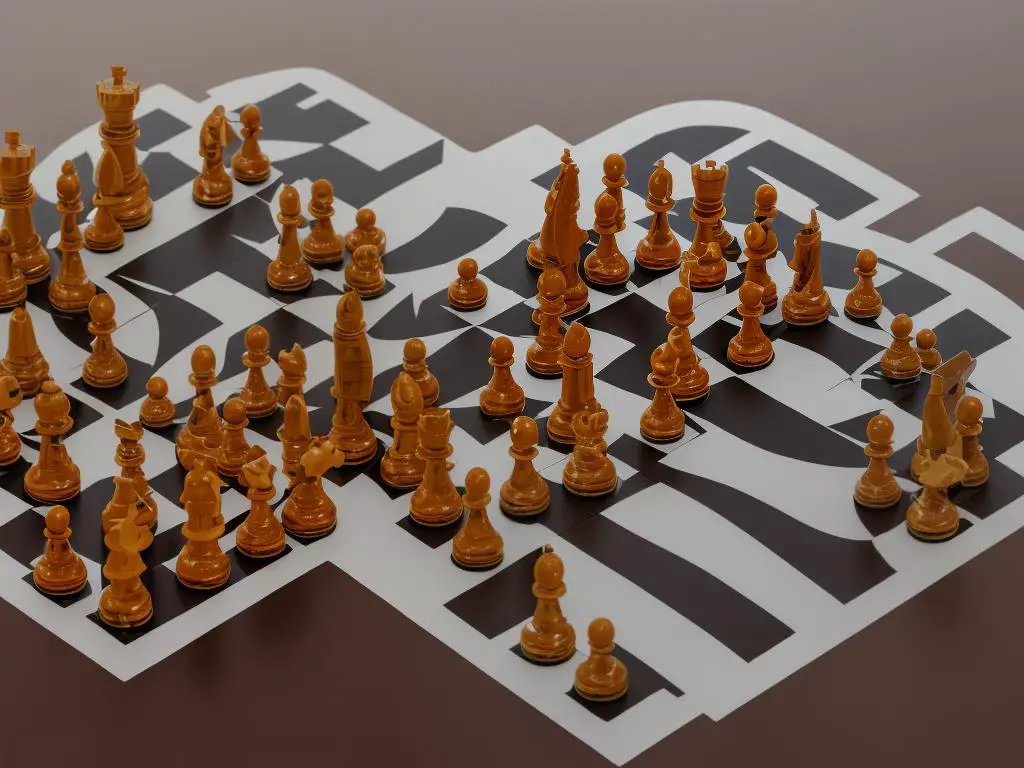
Improving Tactical Skills through Training
Training Tactics in Chess
Moving forward, chess coaches employ various training methods to help their students improve their tactical skills, which are crucial for winning games. Tactics are the short-term calculation and combination of moves that a player uses to gain an advantage over their opponent, whether it’s by capturing a piece or putting the opponent in a vulnerable position. Building on the strong foundation of mental fortitude and support, developing these tactics in chess becomes even more accessible, ultimately helping players thrive in the game.
Solving Chess Puzzles
One widely used method to build tactical prowess is through solving chess puzzles. Chess puzzles are challenges that present a player with a specific position and goal, such as checkmating the opponent’s king or finding the move that leads to a decisive advantage. Solving these puzzles helps players develop pattern recognition and visualization skills needed to spot opportunities and threats in real game situations. Chess coaches often tailor the difficulty of the puzzles to the skill level of their students and progressively increase the complexity as the student improves.
Practice Matches
Another approach to enhance tactical skills is through practice matches, which can be played against other players, online opponents, or against chess engines. Practice matches enable players to apply the skills they’ve learned from puzzles and lessons in a realistic and competitive setting. Coaches often review these matches with their students, pointing out any missed tactical opportunities and discussing better moves or strategies. This feedback-driven approach allows students to learn from their mistakes and reinforces the importance of tactical play.
Game Analysis Method
Analyzing game records, whether from famous grandmasters or their own, is another valuable training method chess coaches use to boost tactical skills. By studying games, coaches and students can identify patterns and discern the logic behind each move, fostering a deeper understanding of tactics and strategy at play. Students can dissect variations on moves to appreciate the consequences of different choices, thereby broadening their mental library of tactical possibilities.
Comprehensive Approach to Improvement
Working on tactics is an ongoing process for every chess player, as it involves continuous learning and practice. Chess coaches often incorporate various aspects of the game into tactical training, such as opening preparation or endgame techniques, to create a comprehensive approach to improvement. Enhancing tactical ability not only results in better decision-making during games but also enables players to feel more confident and capable in their gameplay. By engaging in a combination of puzzles, practice matches, and game analysis, players can expect to see significant progress in their ability to execute winning tactics on the chessboard.
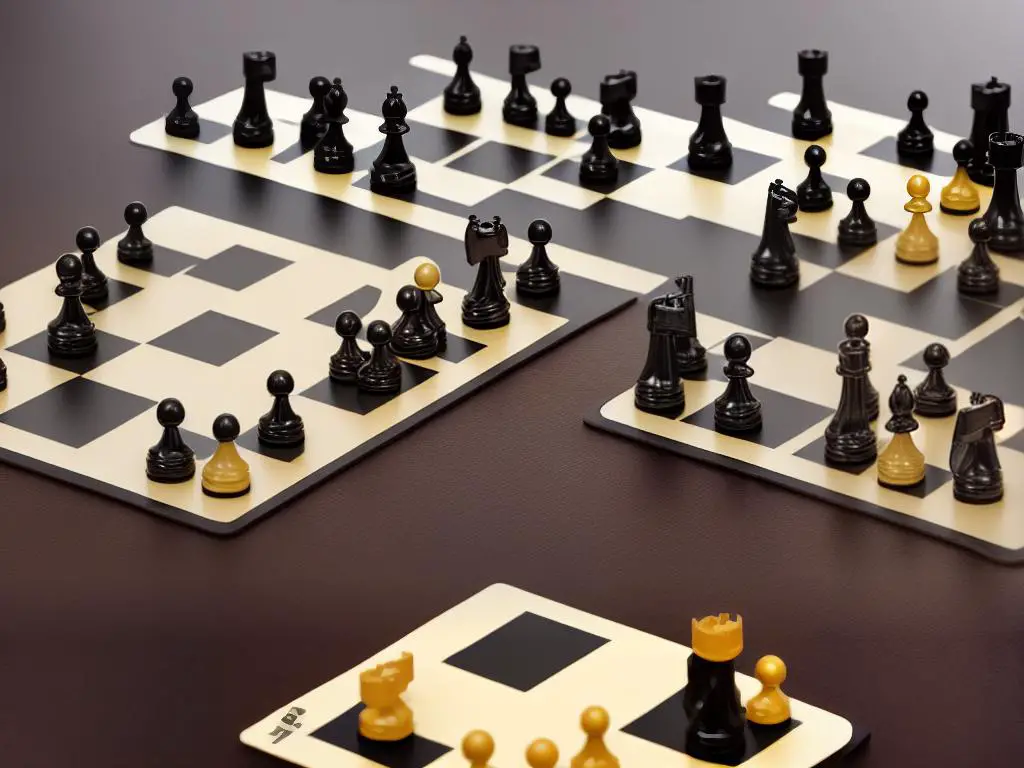
Developing Effective Opening Strategies
Mastering the Opening Moves in Chess
The opening moves are crucial as they lay the foundation for the entire game. Developing effective opening strategies is a vital part of becoming a strong chess player, and this aspect of the game is often emphasized in chess coaching. Coaches work with players to help them identify their preferred style, select suitable openings, and refine their technique. By focusing on the opening repertoire, players can gain an advantage early in the game, allowing them to excel in the middle and endgame stages with the necessary skills and confidence.
Chess Coaching and Principles of Effective Opening Play
Chess coaching not only provides guidance on specific opening moves, but also helps players understand the underlying principles governing effective opening play. These principles include controlling the center of the board, developing pieces quickly and efficiently, and ensuring the safety of the king through proper castling. By mastering these key concepts, players can gain an edge over their opponents and improve their overall understanding of the game.
Studying Successful Opening Systems
One aspect of chess coaching that proves especially valuable in developing opening strategies is the study of popular and successful opening systems. Through analyzing the ideas and tactics behind various openings, such as the Italian Game or the Sicilian Defense, players can better understand the strengths and weaknesses of their chosen repertoire. Additionally, coaching sessions often involve practicing various typical positions that arise from these openings, allowing players to gain experience and build confidence in their play.
Using Databases and Study Materials
Another important aspect of chess coaching with regard to opening strategy is the use of databases and other study materials. In today’s modern game, technology plays a significant role in analyzing and preparing opening lines. Chess coaches help players navigate the wealth of information available online and in books, assisting in the selection of useful tools and resources that cater to each player’s unique needs and preferences.
Individualized Feedback on Opening Play
Chess coaching involves providing valuable insights by evaluating and critiquing students’ opening play in actual games, whether during friendly practice sessions or tournament competition. By reviewing games move by move, coaches can identify areas of improvement, patterns, and common weaknesses that may be addressed during lessons. This individualized feedback helps players fine-tune their opening strategies and techniques, ensuring these critical early game decisions are made with confidence and precision, ultimately paving the way for success in the rest of the game.
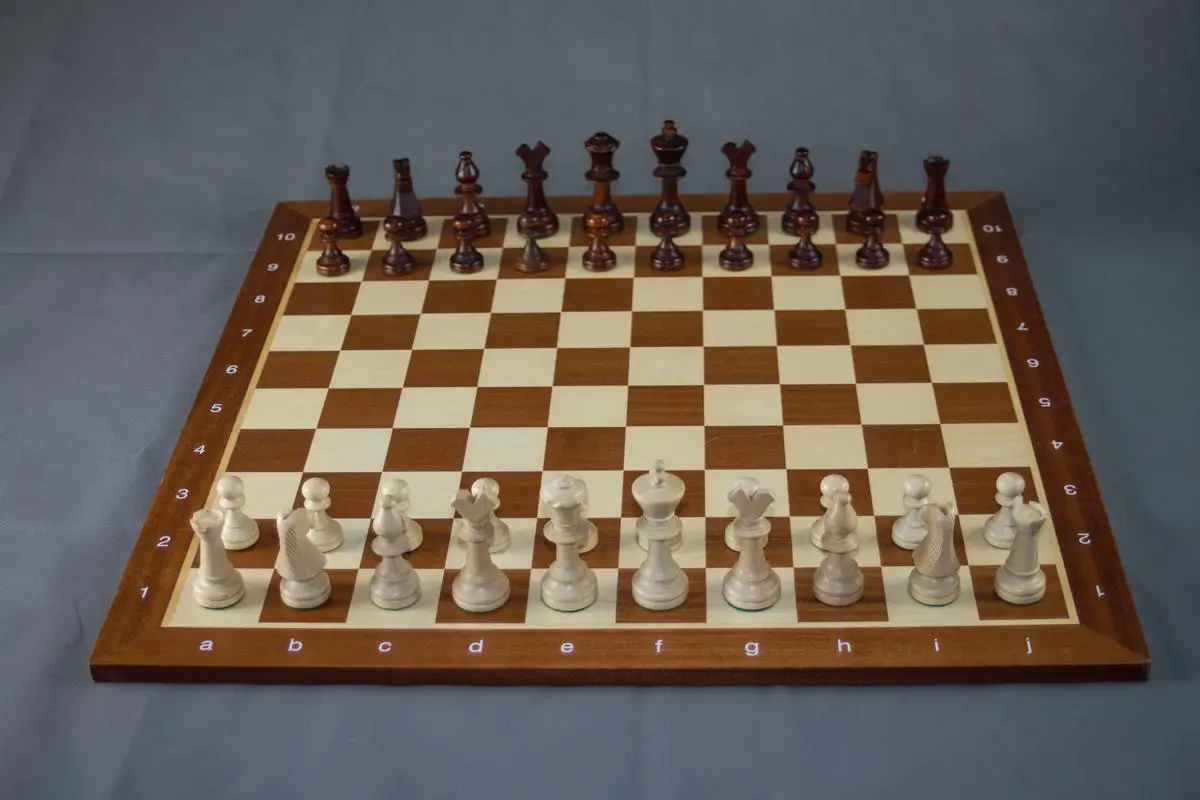
Photo by chris_burns on Unsplash
Enhancing Endgame Techniques
Transitioning to Endgame Strategies
Following the refinement of opening play, an experienced coach will then shift focus to strengthening a player’s endgame techniques. Proper understanding of critical endgame strategies is vital to ensure more decisive game outcomes. One of the most significant endgame scenarios is king and pawn endings. These endings serve as the foundation for other endgame positions, making it crucial for a player to learn the fundamental concepts and ideas behind king and pawn endings, ultimately contributing to their overall improvement in the game.
King and Pawn Endings
A chess coach can help players recognize the importance of king centralization and activation in the endgame. This often involves moving the kings to an optimal central location to maximize their reach while also working on more complex ideas, such as the opposition. The opposition is a concept that enables a player to restrict the opponent’s king from advancing, ultimately leading to a more favorable position. By understanding and mastering the opposition, a player can significantly enhance their endgame skills.
Pawn Structures and Promotions
Pawn structures and promotions also play a critical role in shaping endgame techniques. A skilled coach will teach their students various pawn structures and familiarize them with typical pawn weaknesses, such as doubled or isolated pawns. The understanding of these weaknesses is vital as it allows players to target these weaknesses during the game and capitalize on their opponent’s mistakes. Additionally, knowing when to push pawns and promote them effectively can make the difference between winning and drawing a game.
Rook and Pawn Endings
Rook and pawn endings are another essential area that a chess coach often focuses on during training sessions. These endings are among the most common in chess, making it imperative that one has a thorough understanding of basic principles and strategies in such positions. The rook’s mobility and power make it a vital piece in the endgame, with concepts such as rook activity, rook placement, and cutting off the opponent’s king being significant factors in achieving victory.
Practice and Training
To become a proficient chess player, it is essential to regularly practice and train in areas such as endgame techniques. A chess coach encourages their students to play against various opponents, participate in solitary practice sessions, solve endgame puzzles, study endgame books, and analyze historical games. These activities contribute to sharpening a player’s chess skills, leading to a higher level of expertise in endgame strategies and, ultimately, to more decisive game finishes. Consistent practice and training are the keys to mastering these strategies.
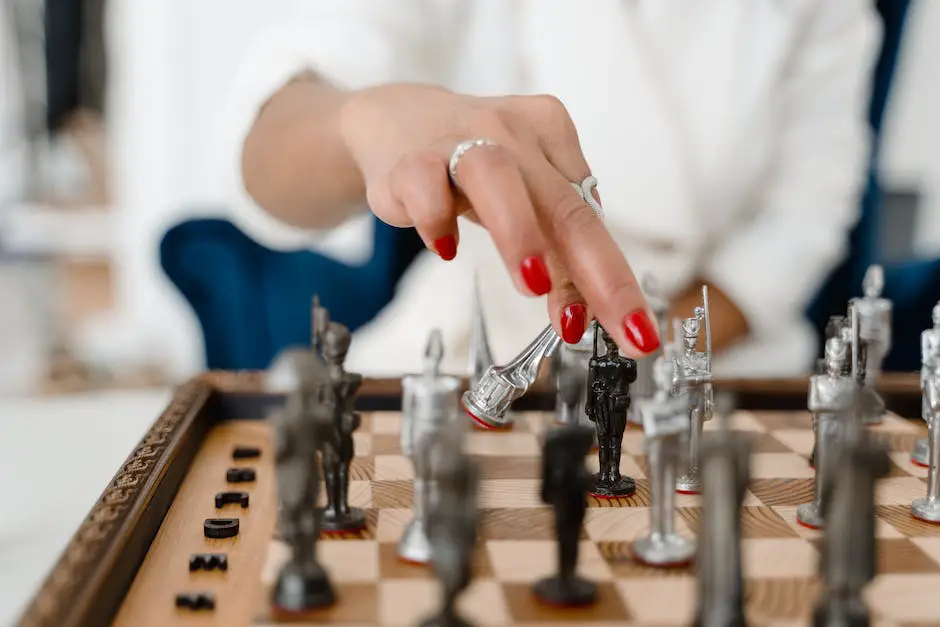
Assessing Progress and Setting Goals
Assessing Progress and Setting Goals in Chess Coaching
Connecting seamlessly with these training methods, chess coaching also emphasizes regular assessments of a player’s progress and the setting of well-defined goals. These elements ensure continuous improvement and success in the chess world. Coaches make use of various methods to evaluate a player’s growth and development while providing targeted guidance and focusing on areas that need more attention. By monitoring performance statistics and working towards both short and long-term goals, chess coaches create structured and effective growth plans tailored to each individual player’s needs and aspirations.
Performance Statistics as an Essential Tool
Performance statistics serve as an essential tool for chess coaches to analyze a player’s strengths and weaknesses. By monitoring parameters such as win/loss records, average time taken per move, and accuracy of moves, coaches can derive valuable insights into the player’s overall skill level and areas for improvement. Software like ChessBase and Lichess have become indispensable resources, allowing coaches to easily record and analyze a player’s games and progress over time. These insights help determine the specific skills that need to be addressed, and can inform decisions on which lessons, drills, and tactics to incorporate into the coaching sessions.
Goal-Setting Techniques for Motivation
In addition to tracking performance statistics, coaches utilize goal-setting techniques to motivate and encourage players to challenge themselves. By establishing both short-term and long-term goals, the coaching process becomes streamlined, with each goal serving as a stepping stone towards achieving players’ ultimate potential. Short-term goals may include improving a specific opening repertoire or mastering certain endgame techniques, while long-term goals could entail achieving a specific Elo rating or winning a prestigious tournament.
The SMART Approach to Goal-Setting
To maximize the effectiveness of goal-setting, chess coaches employ the SMART (Specific, Measurable, Achievable, Relevant, and Time-bound) criteria for each goal. This refined approach ensures that player objectives are clear, realistic, and relevant to their growth as a chess player. By continuously reviewing and adjusting these goals as needed, coaches can maintain a sense of direction for their players and provide the necessary motivation to surmount obstacles while maintaining enthusiasm for the sport.
Conclusion
Consistent assessment of progress and effective goal-setting play a paramount role in the journey of a chess player striving to elevate their skills. By employing various methods of performance tracking and goal identification, chess coaches provide a structured and motivating environment for learning and improvement. As a result, each session becomes an opportunity for players to advance their understanding of the intricate and elegant world of chess, ultimately propelling them towards realizing their full potential.

Photo by dawson2406 on Unsplash
Ultimately, the journey to chess mastery is one that requires dedication, effort, and continuous learning. A knowledgeable and compatible chess coach can play a vital role in guiding players along this path, helping them understand core concepts and apply effective strategies. By working together to set attainable goals and assess progress, players and coaches collaborate to unlock untapped potential and conquer new heights in this timeless game.
